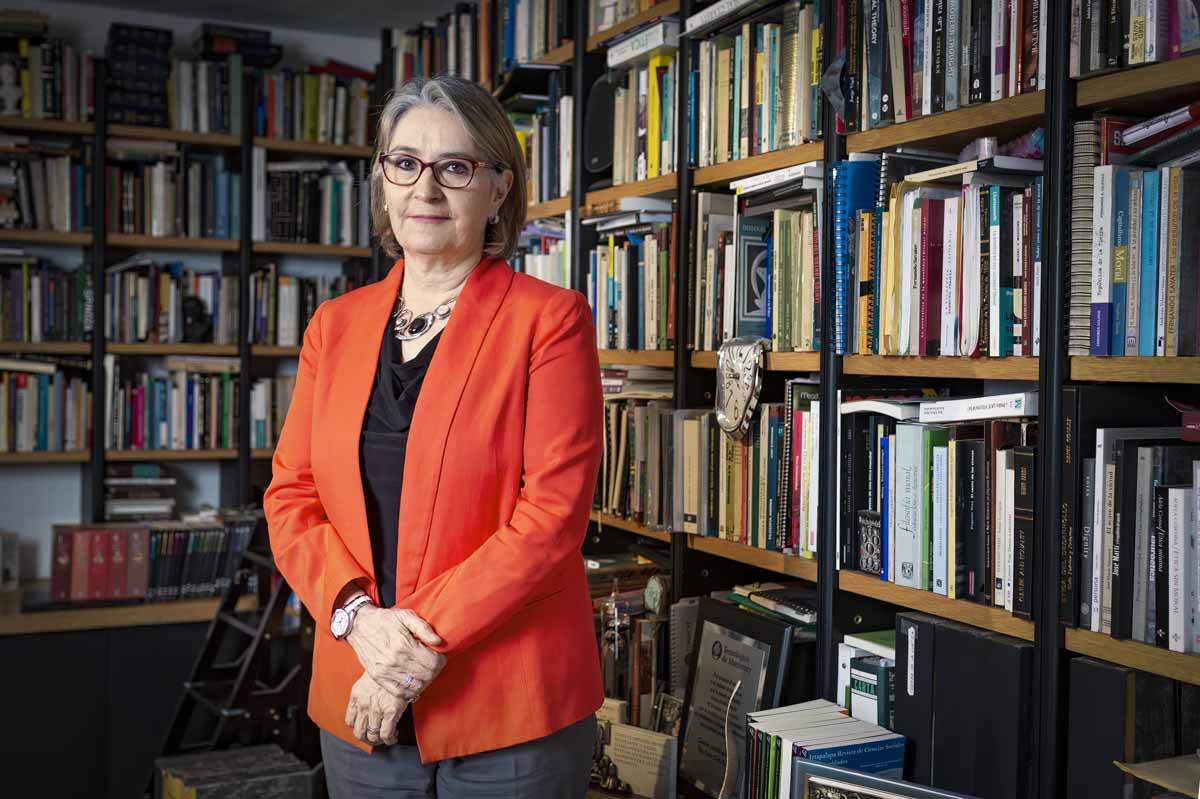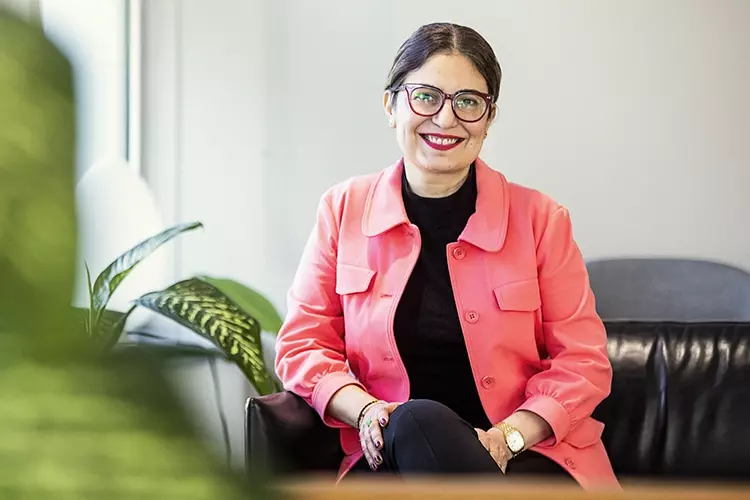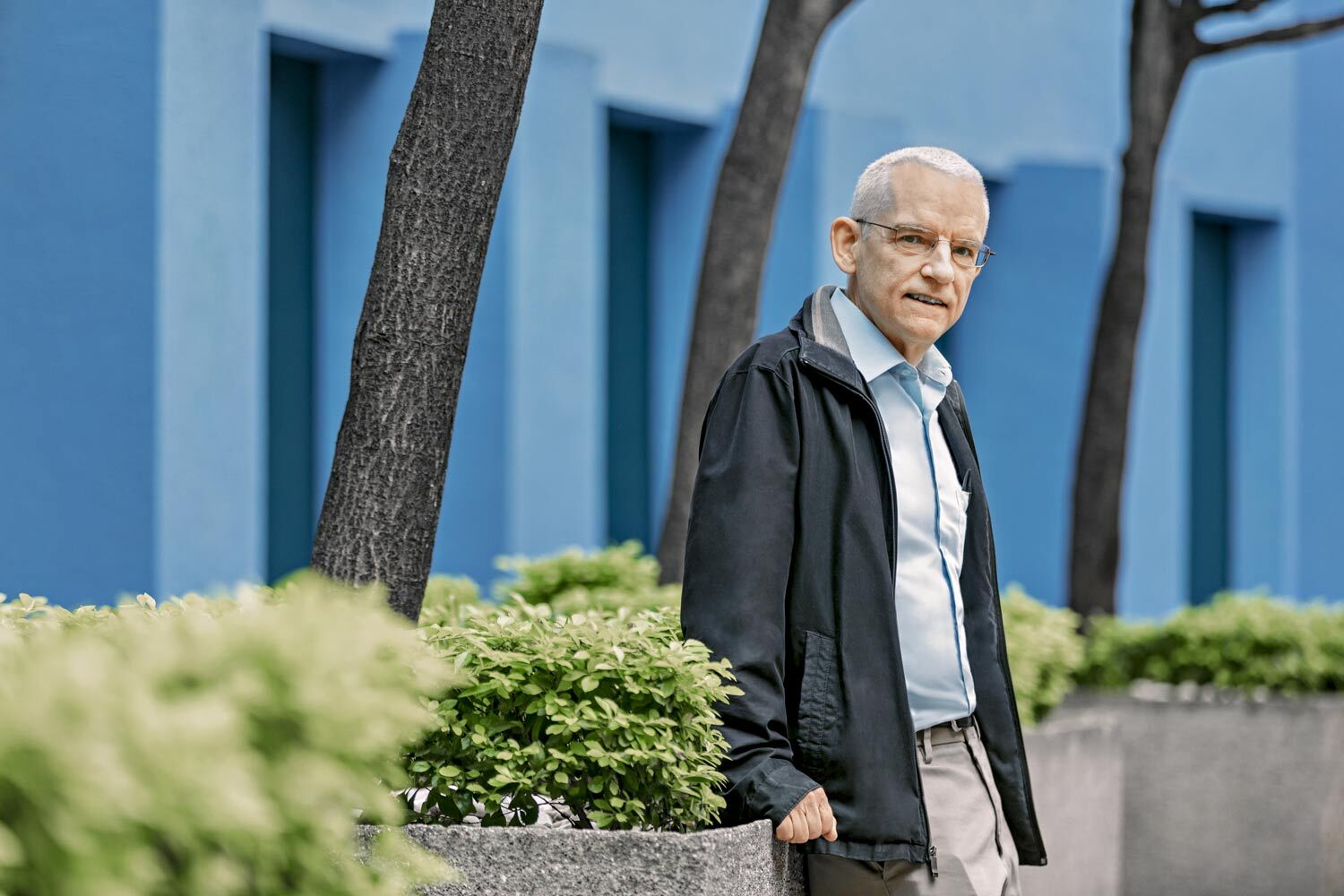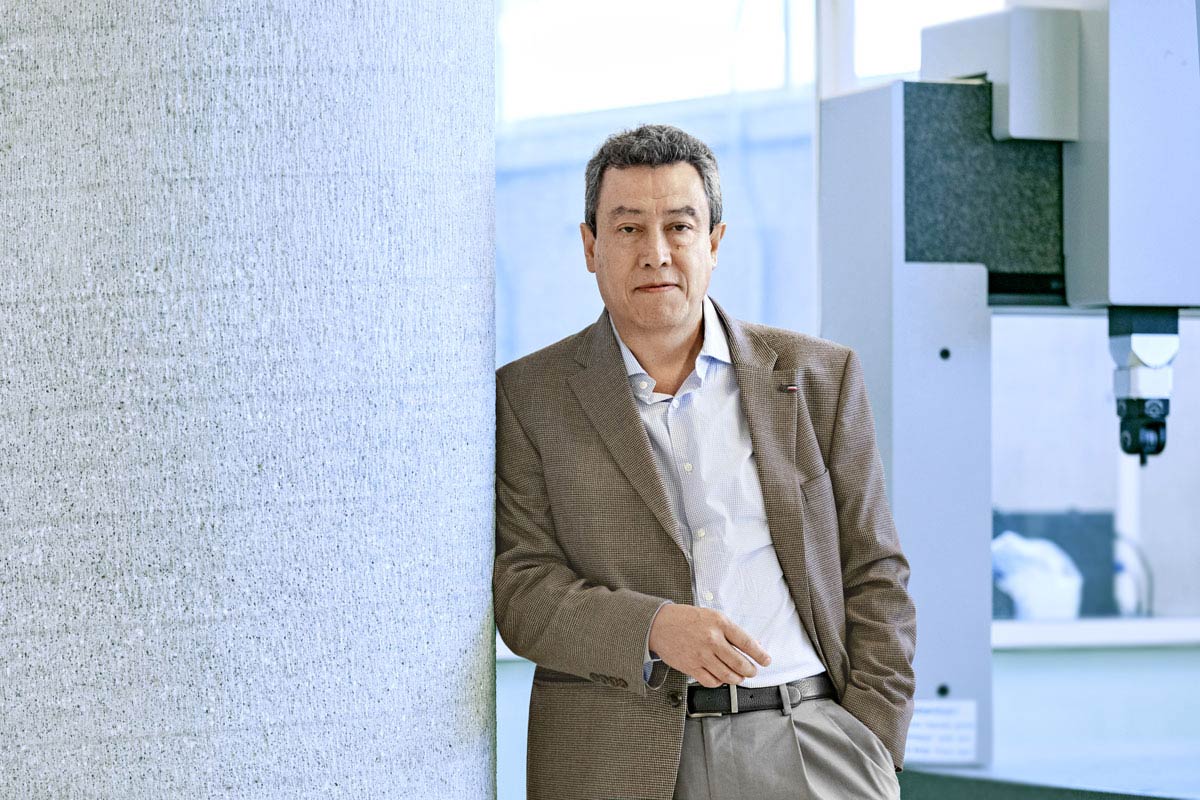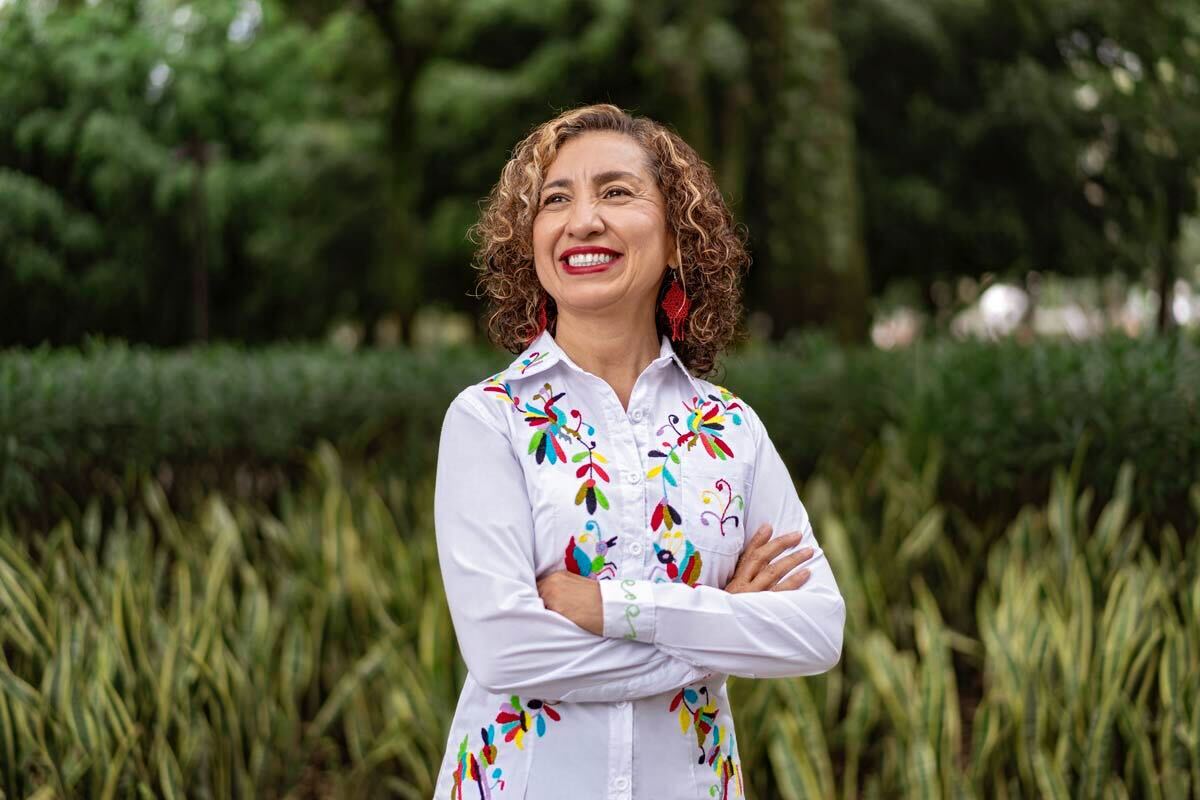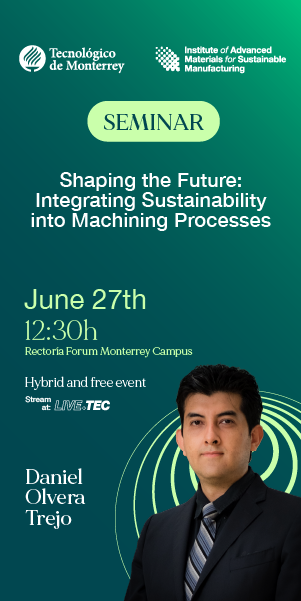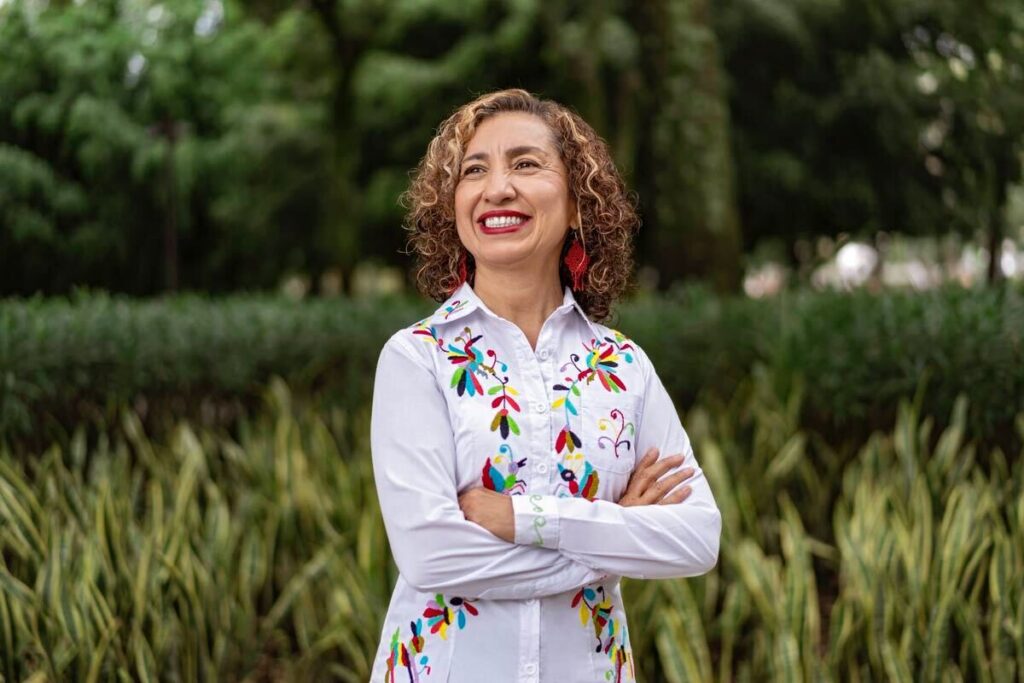By Aníbal Santiago
“Be punctual,” was Dora Elvira García González’s request to the TecScience team coming to her home to interview and photograph her. Arriving on time, I spot her house from the rustic pathway that used to be the San Ángel river a century ago. She smiles as she answers the door, impeccably turned out in an orange jacket. “Hello,” she says. Time is not wasted. In the space of 20 seconds, we’re in her study overlooking the garden. Innumerable objects are piled on top of each other and squeezed onto shelves stacked with books around her desk: everything you can imagine.
Sitting before me is one of this country’s most important thinkers, whose reflections scratch Mexico’s deepest wounds: gender and violence, abuse, injustice, exclusion, and inequality. Dora Elvira has a fixed and attentive gaze, as if she were digging into the internal world of whoever she is looking at.
She notices my interest in a painting hanging over her head behind her desk. “It’s the School of Athens… Raphael painted each philosopher according to what they thought,” she explains. Explaining is her vocation, beginning over four decades ago when she became a teacher. Aristotle is pointing at the spectator: “As he spoke about context” (ideas are based on the physical world). “Plato is pointing at the sky because he speaks about topos hyperuranios (the “real” world is the spiritual realm of abstract ideas).” I decide it best to lower my gaze to the physical world, her crowded desk.
What’s your research process like?
I read. One book takes you to another book, and that one takes you to another. I make notes in the margins and underline things. My desk is so untidy because I work on many books at once. I get up at 6:30 a.m. At that time, I’m happy to sit at my desk and read in absolute silence, drinking coffee and water. Reading steals a lot of time away from spending time with my husband. Here, I read books for research. I read literature on the couch.
Born in 1957, Dora Elvira was the third of five children in a family from San Pedro de los Pinos: “I used to go cycling with my friends; I’ve always loved cycling. It was a peaceful neighborhood of families who all knew each other. We’d all relax in Pombo park,” she recalls.
What was the intellectual life of your family like?
I grew up surrounded by books. Although my dad was a public accountant, he encouraged his children to read. He recommended books to us from his extensive library. In the evenings, he’d read on the couch in his room. At the weekends, he’d go into his study to read about history and philosophy. Classical music was also important: I took flamenco classes and learned to play piano and accordion from an early age.
Besides my family, I was also influenced by my school: Colegio Madrid. They were teachers with revolutionary left-wing ideas who’d been exiled from Spain, who influenced my thirst for knowledge. Anger and my desire to build a better world have marked me since elementary school. At high school, my teacher Laura Freijóo introduced me to philosophy. She suggested authors such as Ortega y Gasset, for whom philosophy was marked by its time.
Dora Elvira received the Romulo Garza Insignia Award in 2020, the highest recognition a Tec researcher can receive. Her study is a universe of objects, a kind of museum that serves thought: sculptures, pens, photos, pages covered in handwriting, China seals, a Don Quixote bookmark, a printer, a glass of water, folders, a cup of coffee, and Dali’s melted clock (life here runs counterclockwise).
Which books made an impression on you when you were little?
Little Women, and from Mexican literature, The Bandits from Río Frío by Manuel Payno, and Clemencia by Manuel Altamirano.
Why did you study philosophy?
To understand inequality, injustice, exclusion, and poverty. I wanted to study at the UNAM, but my dad refused because of all the strikes: the 1968 movement was brimming over. I studied at Universidad Iberoamericana, which questioned the status quo less. Although the Jesuits were open, brave, and committed to society, their line was a religious one. We barely studied Marxism. At the UIA, my interest inclined toward political ethics, theories of justice, overcoming violence, and philosophy of peace.
What was it like studying philosophy in a sexist country?
I got married very young and my desire to teach was questioned. It wasn’t the path marked out for me by society; it wasn’t a matter for debate in my home, but I put my foot down: I wanted to teach after college. My dad asked me: “Why work if your husband José Luis already has a job? You’re in charge of raising your kids; you’ll neglect them.” But he wasn’t going to limit my passion. I spent ten years studying for a master’s and a PhD while bringing up three kids and giving classes. I did everything I had to, although the moms of my kids’ friends excluded me because I didn’t go to their breakfasts or inconsequential meetings. They thought: “Poor woman, she has to give classes.” They didn’t know that I was fortunate to give classes.
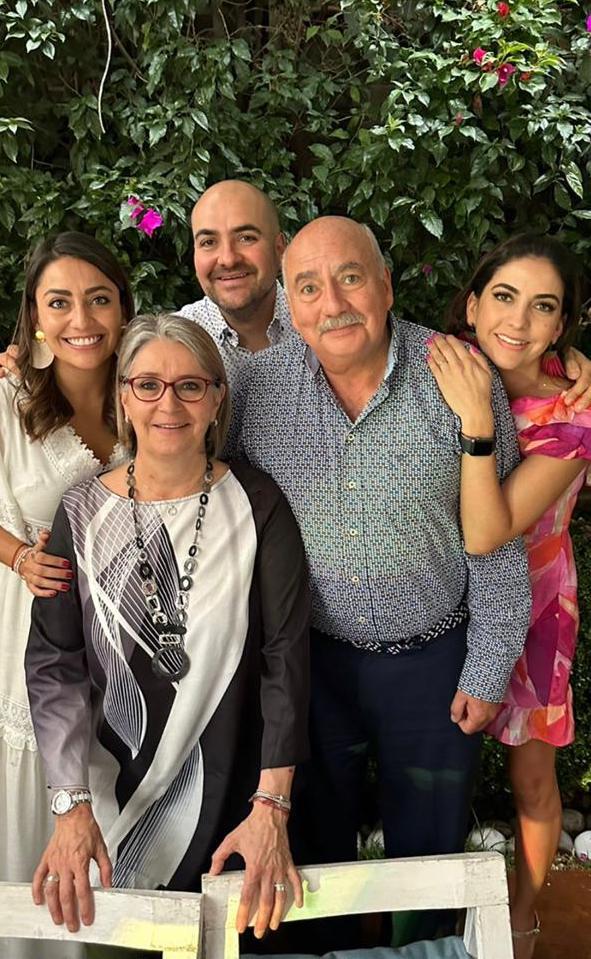
The importance of teaching philosophy
Dora Elvira, who is the Coordinator of the UNESCO Chair for Ethics, Culture of Peace, and Human Rights, author of books such as Del poder político al amor al mundo, Hermenéutica analógica, política y cultura, and Ética, profesión y ciudadanía, knows how to listen. She looks you in the eye, never interrupts, and keeps long silences before answering. Before responding, she processes the words that she doles out.
Describe yourself as a teacher.
I’ve prepared my classes all my life; I make a lesson plan. But if there are any questions or detours to current issues, I go off course. What students say is as important and valuable as what I have to say.
How do you feel you can improve in that area?
I have an immense challenge: translating complicated and deep subjects for students with prejudices about philosophy. They think that all you have to do is make big speeches. They’re prejudiced about any form of self-examination. Philosophy raises awareness: the kids who are going to run companies or public agencies can help make a difference.
Should philosophy be taught to children?
It would be a great success. Children are deeply philosophical: they question everything. School stops them asking questions; kids who ask a lot of questions are made to feel uncomfortable. Critical children could become capable people in any subject. If nobody shuts them up and puts them in their place, they ask questions, find problems, they’re critical (her hand comes down on the table three times to mark these phrases, making her bracelets shake).
Is the current government unphilosophical? The official line is: “Don’t question, don’t ask; the world is black and white.”
Polarizations are a huge mistake. They don’t provide solutions to a society that is already divided, resentful, and iniquitous. Valuable thinking is not just about black and white, but the gray spaces in between, not whether we toe the official line or not. There’s a lot of regressive thinking.
She began giving classes at the Tec 20 years ago “to help students think clearly and understand the world through philosophy.” Her academic community introduced “cross-cutting ethics” so that reflections on humanity from different disciplines were close to what professors, directors, and employees were doing.
To build a better world
There are thousands of books everywhere, in front and behind. Dora Elvira, who holds a master’s and a PhD from the UNAM, an Insignia Award from the Tec, and was Research Director at the School of Education, Humanities, and Social Sciences at the Tec, as well as director of the institution’s journal En-claves del Pensamiento, is embraced by a world of books. Looking around at random, I spot Utopia and Disenchantment by Claudio Magris; Time of the Magicians by Wolfram Eilenberger; and one of her own: Trascender la violencia.
Which book would you suggest reading to someone taking up philosophy?
The Human Condition by Hannah Arendt. It’s enlightening. She opened my eyes.
Now that you’ve received the Mujer Tec Award for your research on gender perspective, what do you think of feminism in Mexico?
Although we’ve made progress, there’s a lot of reticence due to a lack of knowledge and prejudice. Feminism implies involving the masculine: men and women lose in this system. We have to deconstruct the model so that both can live to the full. We need our higher education to investigate and speak about it. If youngsters don’t stop to think about the importance of these subjects and don’t do the theoretical work, it will be hard to make any change. For instance, they have to know that women everywhere have spoken up about ecocide. They look at the farms, the polluted water, and the lack of water because it was taken out of the springs nearby or because it doesn’t rain anymore after the forests were cut down.
What does the School of Humanities want to do now?
To provide instruments for being critical, valuing the dignity of people and their actions, from human perspectives and not necessarily from the statistical, technological, and economic perspectives the world is suffering from. It seeks to build a better world.
This mother of three is now a grandmother: “I enjoy and dedicate myself body and soul to my grandchildren. I read them stories, we run around in the garden, and we play ball. I have many things to do, but I give them quality time.”
Time, as always. Elvira looks at the clock and gets up. The interview is over: there are many things to do.
